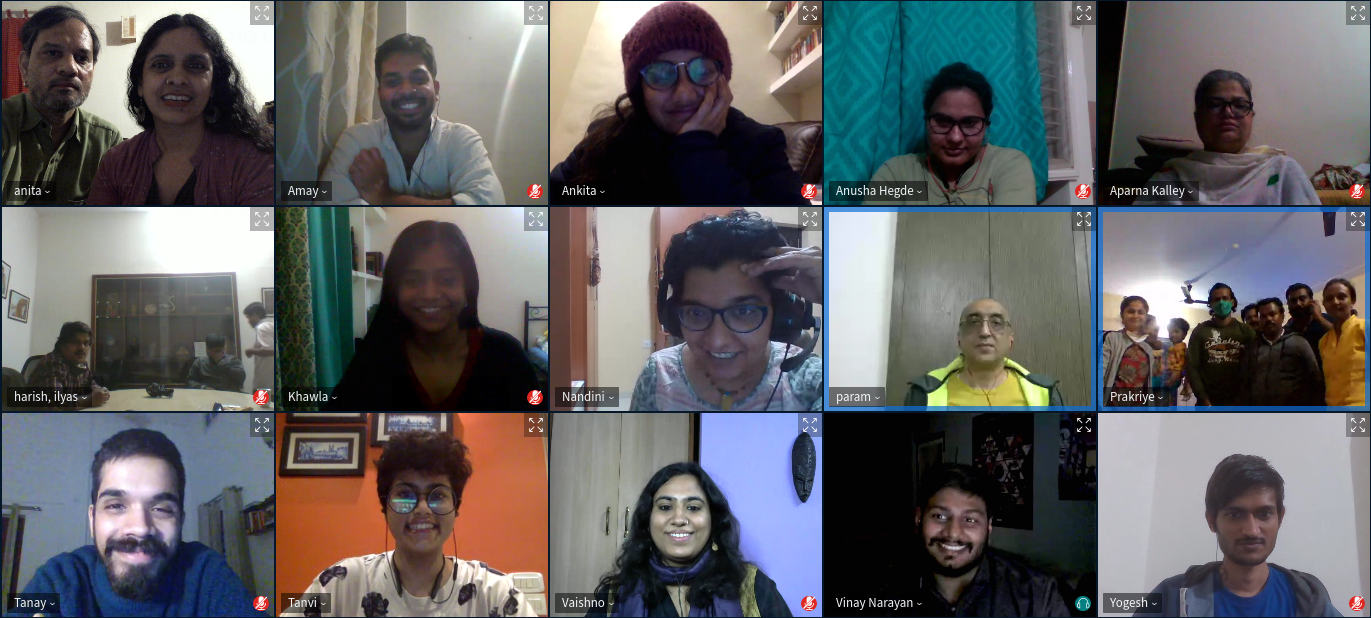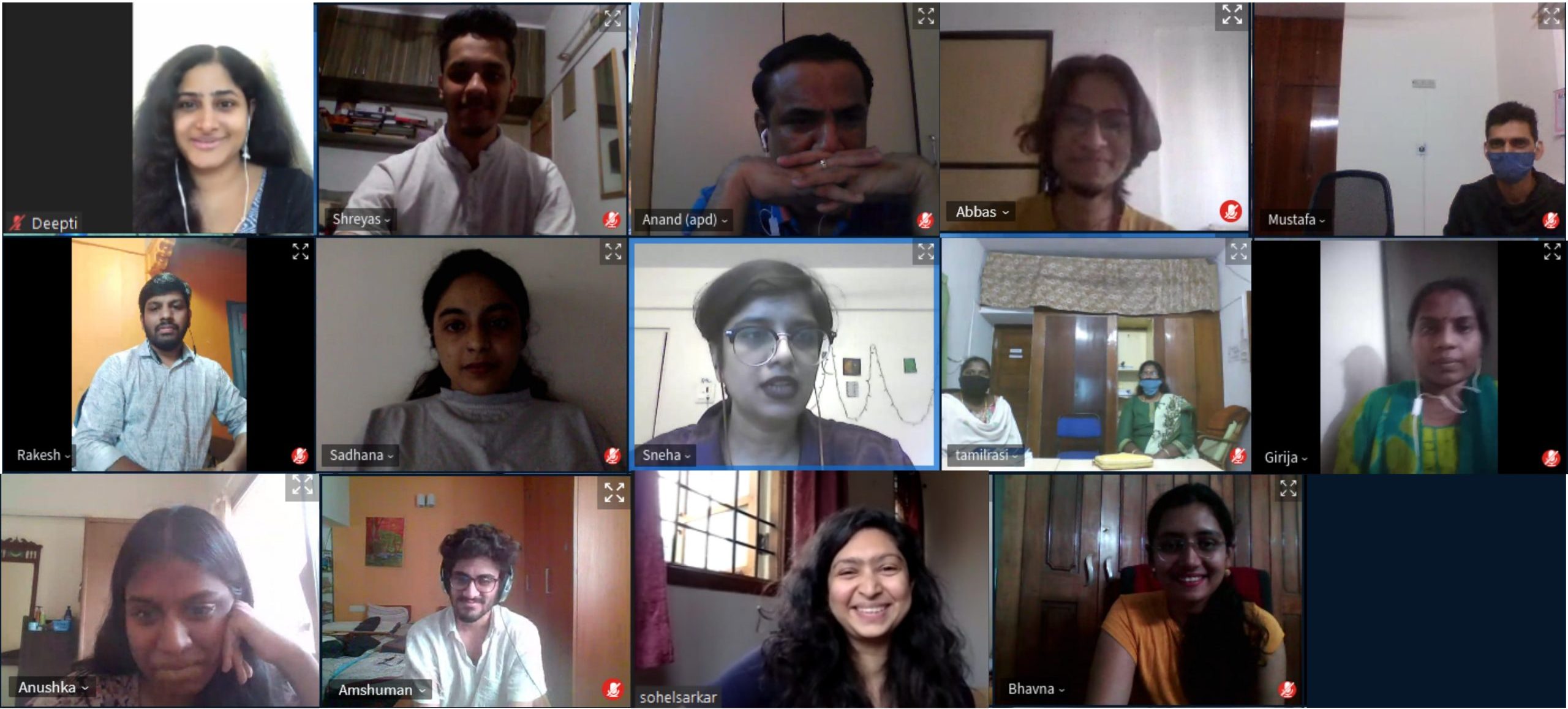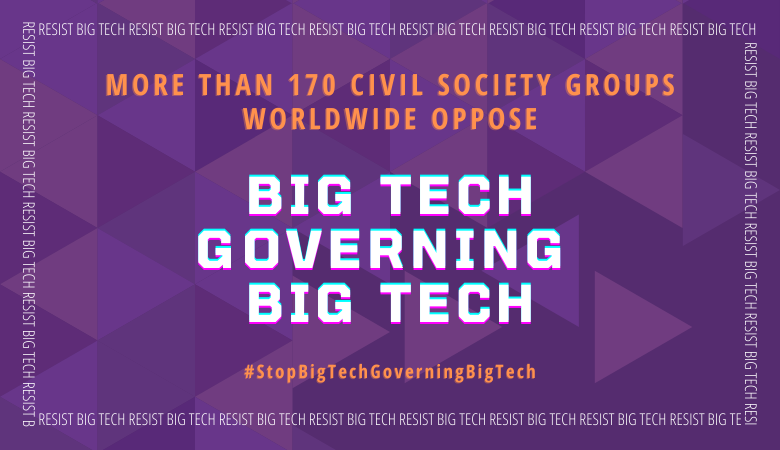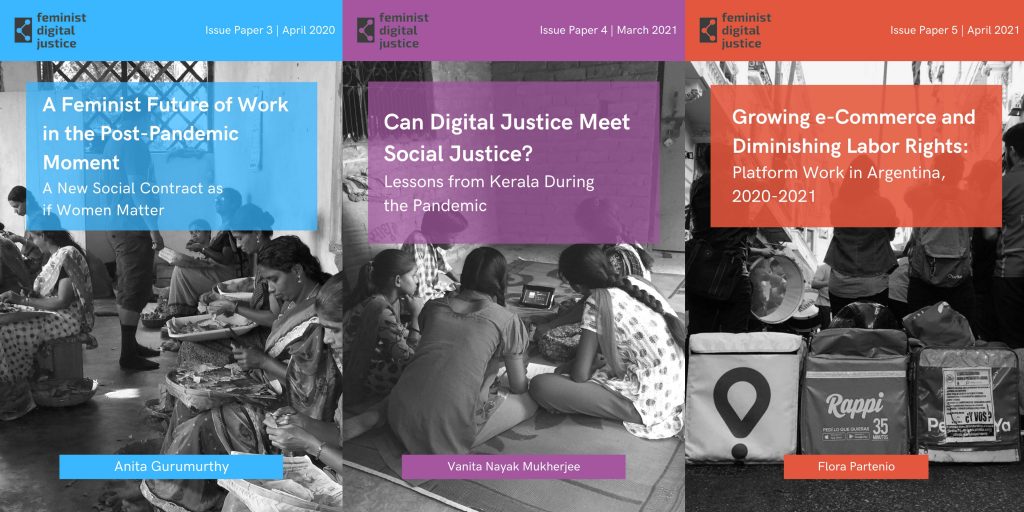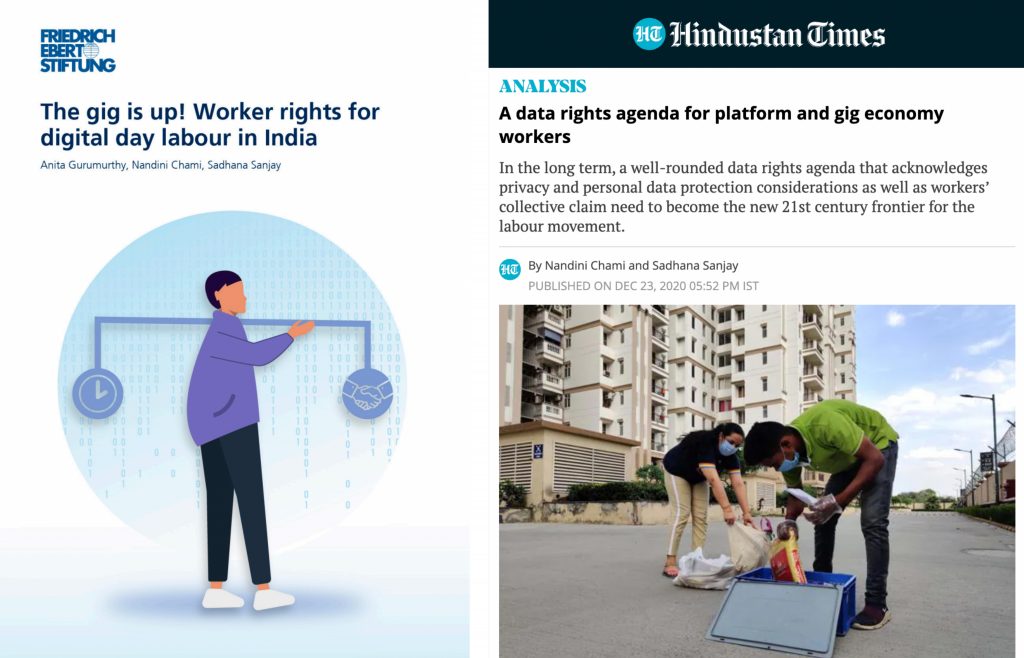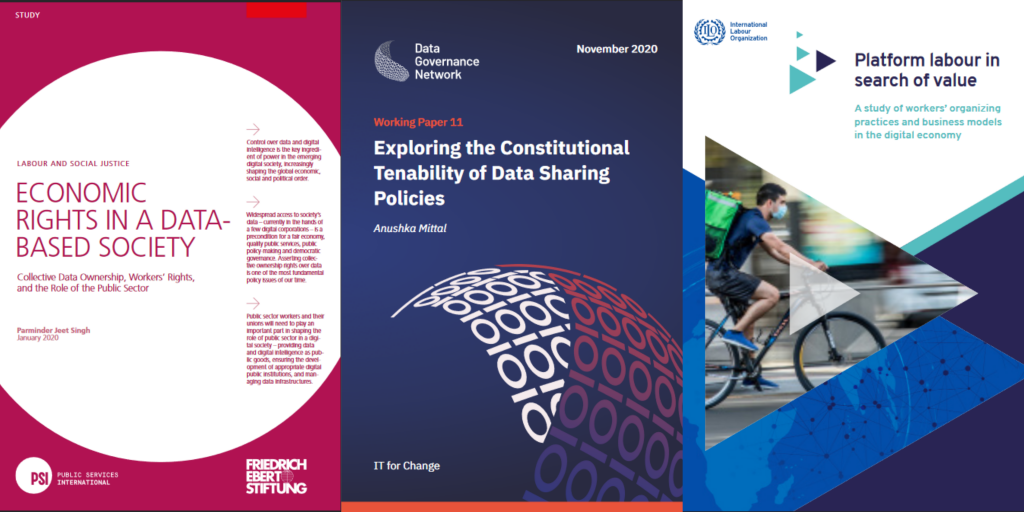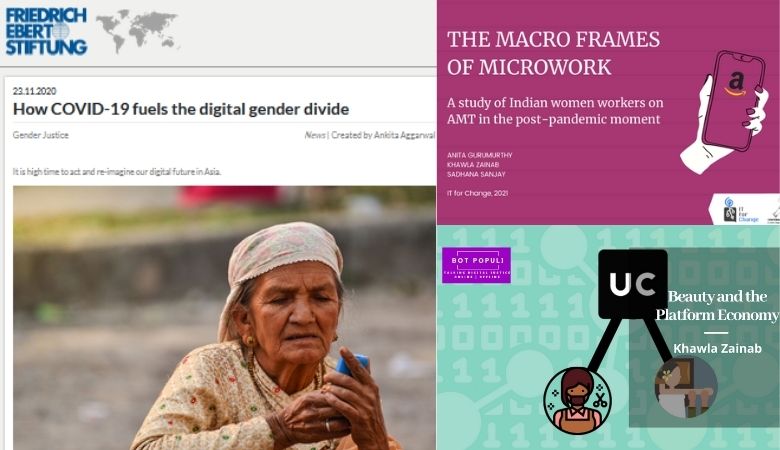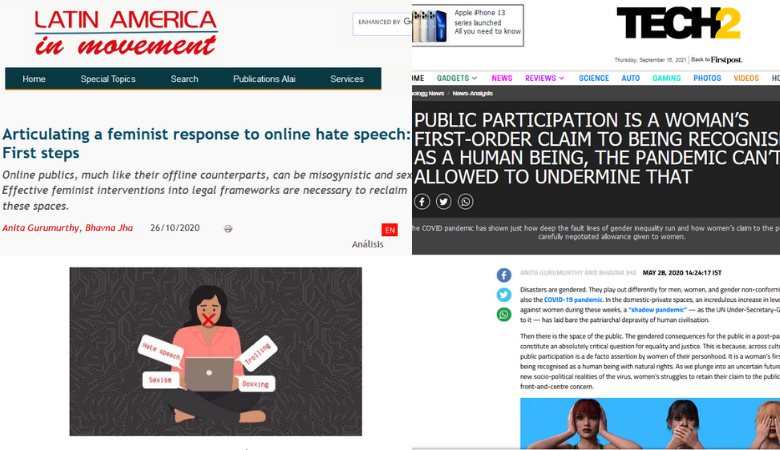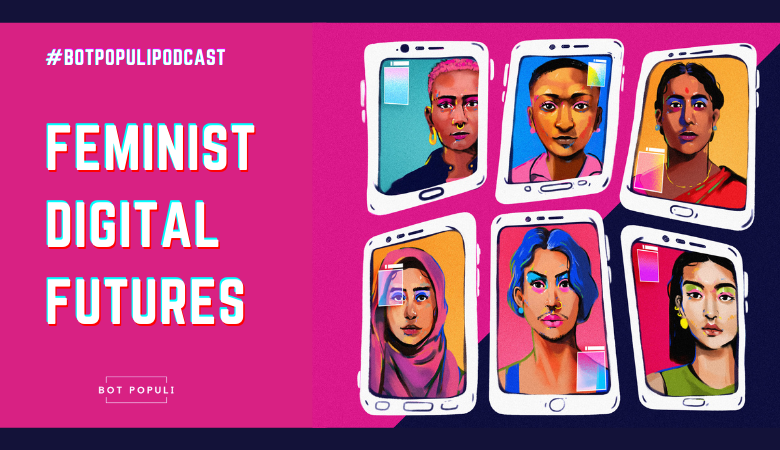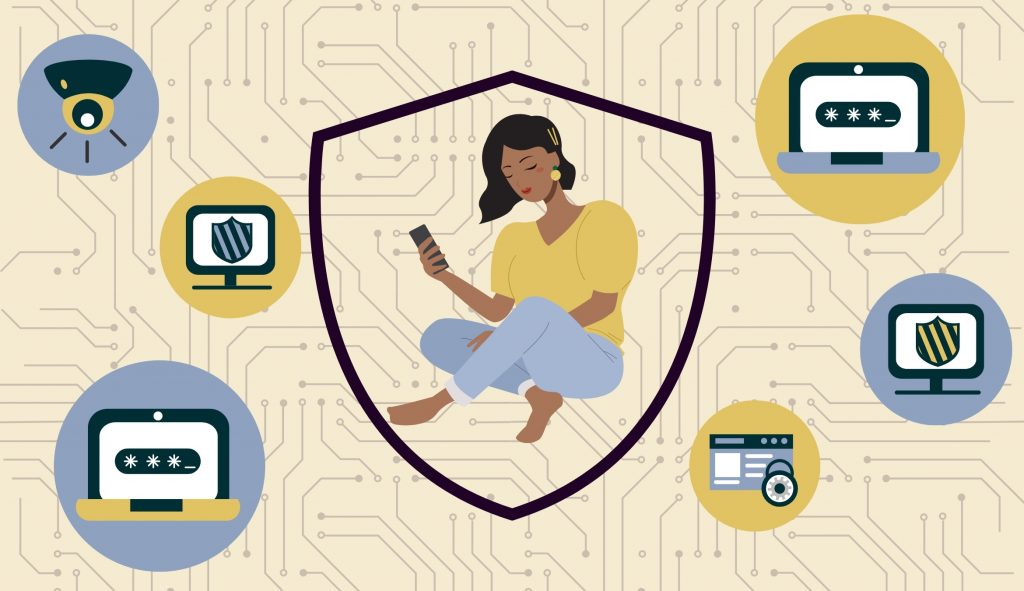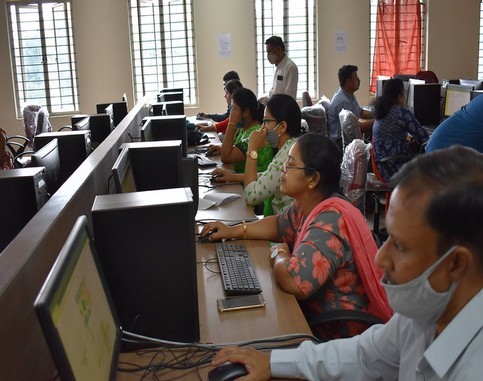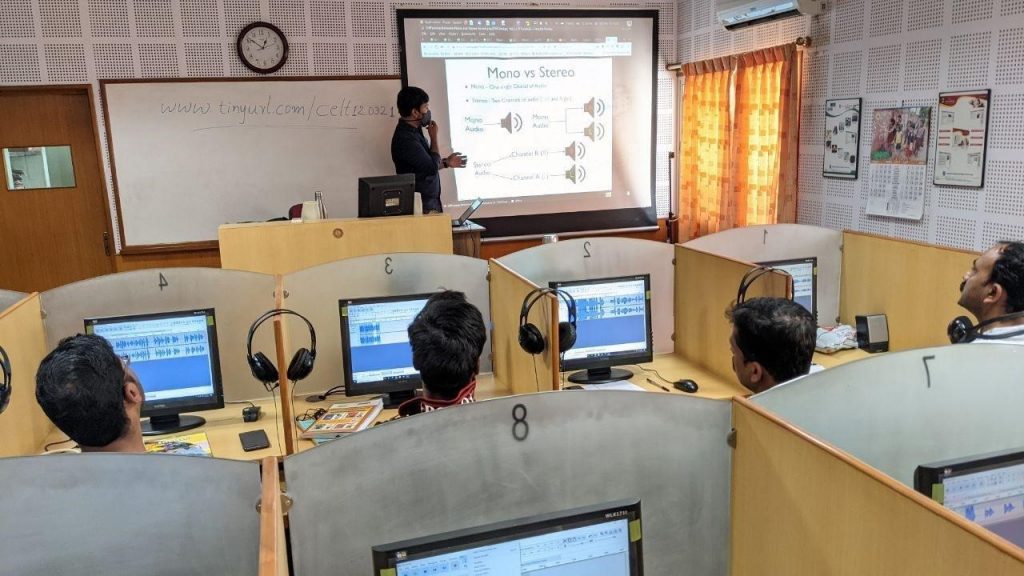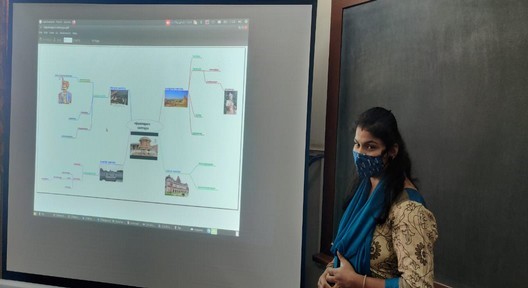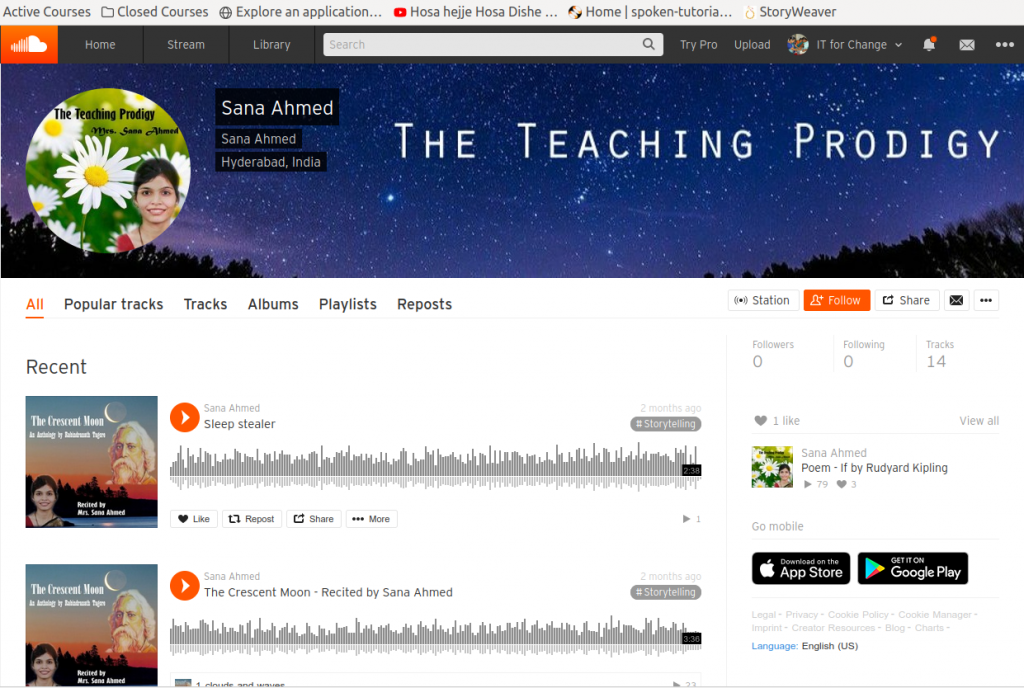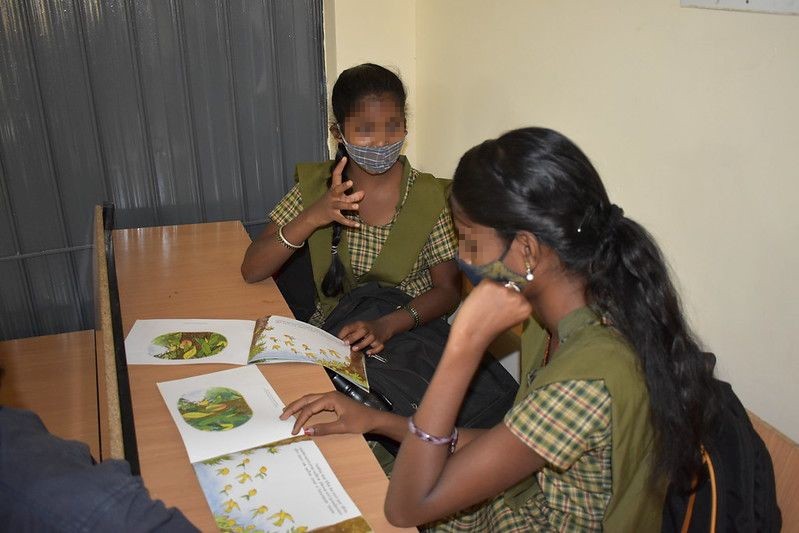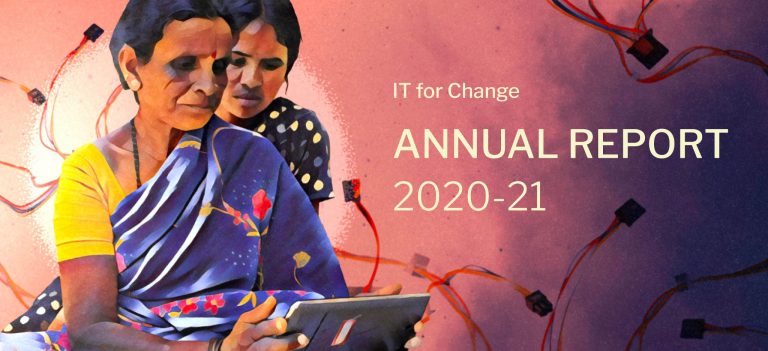
Directors’ Note
September 2021
Much has been said about how disaster capitalism found its moment under the sun as the pandemic began to unfold, leaving societies struggling with wave after wave. The normalization of the digital in our everyday life through this sudden and unprecedented point of social inflection leaves mixed feelings. We may, perhaps, have been far more socially distanced, but for the life-giving connection possible through digital communications. But as is widely acknowledged, digitality’s unequivocal coming of age during the pandemic is certainly no straightforward success story of human civilization. Those who were disconnected from the circuits of power and privilege before the pandemic are now simply left behind. The evidence here is not only about stories that make it to the mainstream of digital exclusion – like the disastrous squandering of a generation’s developmental needs and aspirations – but also a deeper malaise; ironically, about the very paradigm of digital inclusion.
UNCTAD’s Trade and Development Report 2020 defines in simple terms, our preponderant social problem – of all the pre-existing conditions unraveled by the Covid-19 shock, the increasing levels of inequality pose the biggest threat. We now face the prospect of an even more unequal future, with recovery for the wealthy and struggle for everyone else. This is where the tech barons come in. Even before the pandemic, Big Tech had changed the logic of economic organization. Feeding off of ‘behavioral surplus’ – a term coined by Shoshana Zuboff to describe the extraction of societal data for profit – they were steadily building up digital intelligence reserves to capture people’s minds, and future markets. Like patents of the erstwhile industrial age, the Artificial Intelligence (AI) from data sets held as trade secrets was emerging as the key to market consolidation. Presenting near-insurmountable barriers to entry for smaller firms, a handful of digital behemoths were transforming services, taking over manufacturing, and platformizing agriculture. Jack Ma, founder of Chinese tech giant Alibaba, would often say how the art of new retail (based on the craft of Big Data) allowed him to grow his business in just a few years – a feat that Walmart needed decades to accomplish.
Big Tech datafication acts as a centrifugal force of the new economy, leaching away power from the peripheries. It has ushered in new trends – precarization and immiserization of labor through a carefully-crafted rhetoric of the autonomous gig; acceleration of deindustrialization in many countries of the world; pilferage of natural wealth held as the commons in the form of digitalized bioinformatics; accelerated privatization of social welfare systems through state-corporate partnerships; hollowing out of social trust with the proliferation of hate and misinformation in an algorithm-powered public sphere; manipulation of electoral democracy and re-engineering of civic sensibility by the data industrial complex, and more.
The pandemic was a defining moment for these shifts – deepening the reach of unaccountable neoliberal capitalism on digital steroids. What it means to be engulfed in this paradigm is becoming crystal clear, with our socio-political and economic systems now completely capitulating to digital mania. Tech stocks have vastly outperformed the broader market in 2020. Last year also saw a steady flow of tech mergers and acquisitions (M&A) in the global market that totaled $634 billion, marking a year-to-year increase of 91.8%. Reports tell us that 2021 continues to be a record-breaking year for tech industry deals, with the first half already breaking global records for M&A that are worth over $671 billion. The EdTech sector is booming, ever more so in India, and the FinTech industry, rapidly destabilizing the financial landscape, is scrambling to rake in its share – from digital wallets to asset management, credit scoring, digital insurance, and peer-to-peer lending. Meanwhile, unmindful of crumbling public systems, governments are out-pacing one another to feverishly embrace apps for everything.
At the cusp of the new post-pandemic world order, a silver lining did emerge in the discursive arena. In 2021, tech-lash was reshaping popular imagination about the hitherto unchallenged benevolence of Big Tech. Homilies about voluntary good behavior from the likes of Mark Zuckerberg, CEO of Facebook, were no longer convincing. Citizens, consumers, workers, small producers, and businesses were slowly beginning to understand and stand up against the insidious connection between data and predatory dominance. Quite eager to secure its own tech sovereignty, the EU was already coming up with a range of policies for the data market. Some developing countries were also figuring out the need to do something about the unregulated exodus of data from their jurisdictions in the new economy being recast through data-rooted value chains.
The pandemic has also seen many victories for workers in path-breaking court cases in the EU, UK and US, and deepened public consciousness regarding their plight. Similarly, citizens the world over are demonstrating great vigilance, challenging state excesses and authoritarianism in the data age.
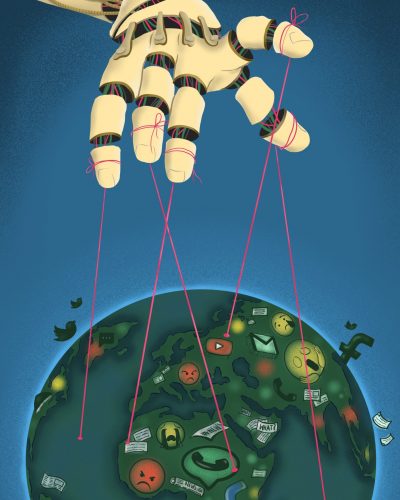
Yet, one blind spot remains – the profoundly individualistic frames that shape the meta-narrative of digital technologies. The ideas of disruption and innovation that have, by and large, scripted the story of digital capitalism are entrenched in the assumption that success is about market capitalization. Data-for-good and AI-can-fix-it solutionism has further muddied the real possibility for prudent, socially relevant, and appropriately governed digital models.
In 2008, French philosopher, Dany-Robert Dufour, rather presciently theorized that, compared to earlier systems of domination – which worked through institutional controls, reinforcements, and repression – new capitalism runs on ‘deinstitutionalization’. By destroying institutions and human collectives, neoliberalism produces “Individuals who are supple, insecure, mobile and open to all the market’s modes and variations.”
As an offshoot of the neoliberal economic order, the digital paradigm goes one step further. It unhinges the link between democracy and its institutions through the techno-material infrastructure of data, creating a social-scape ordered by a privatized data regime. The body politic in this social organization stands decommunitized like never before, even as intense statist totalitarianism built on data systems takes control. Citizens, consumers, producers, traders, workers – all of us, are subsumed into individualized data-mediated arrangements orchestrated by platforms. Laws are simply ineffectual in dealing with the toxicity unleashed on marginalized social groups by opaque, platform-controlled algorithms, and fail to address the structural conditions necessary for smaller market players to find a level playing field.
As networked environments propelled by data and 360-degree insight, dominant platforms also cannibalize public institutions, transferring public functions to rent-seeking commercial monopoly infrastructural systems. Activists in the UK fought and won a valiant legal battle this year to stop the government from giving away public health data to a data analytics firm, Palantir. By scrapping many NHS procurement rules, the secret deal was not only opening up the door for Big Tech firms to poach on public health data sets, but also influence vital healthcare decisions. This is not an exception by any means. Emerging digitalization trajectories of Indian public agencies in agriculture, health, and several other sectors heavily favor this commercial platform model.
Neoliberal digitality also decimates the civic-political fabric. Rights become the residual claims of the subject of the market, with democracy becoming increasingly aligned to a desocialized, choice-maximizing personhood. Protections in the form of privacy as an individual contract of consent serve as the veneer of an autonomously chosen digital condition; one that then allows the market to function unhindered.

What Must Digital Justice Activism do in this Overwhelming Context?
This is the main question that IT for Change is grappling with today. As networked individualism threatens the very fabric of society and its institutions as we know them, we see a crisis of justice and democracy. To take the surveillance bull by its horns, we do, of course, need a re-articulation of our human rights, but this must be through a post-liberal framework; that is, a system of norms, claims, rules, and obligations that re-instate the collective-social. This is the perspective that informs and guides our thinking and actions.
We reject the over simplification of digital injustice into the slippery rhetoric of the digital divide that hides the digital webs of systemic exploitation.
We hold that re-politicizing the digital debate and reclaiming digital justice hinges on communitization of data ownership and alternative, socially accountable models for AI.
We seek policies that can break Big Tech; disallowing businesses from operating in more than one key segment of the data value chain and the main technical layers of the digital stack.
We argue for bold new thinking at national and sub-national levels for generating public and social value from data and AI. Digital policies need to promote innovation in public and community systems, investments in public standards, protocols and infrastructures for data and AI, and sustained efforts to decentralize the digital economy.
We wish to hold platform intermediaries accountable for their failure to address hate and violence online, and their abject neglect of women’s human rights. We also seek a plurality of digital media that can inter-operate to appropriately fulfill the democratic role of media.
We extend our unconditional support to the various bold initiatives that present an alternative to the neoliberal platform model.
We have no doubt that the state needs to be reclaimed and its institutions reinvigorated, away from its marked descent towards digital authoritarianism.
We seek to conceptualize and demonstrate what agile digital systems that are meaningful and empowering for individuals, communities, and public institutions look like.
And, as a learning organization, we see the symbiotic relationship between global and local engagement, and between research, advocacy, and demonstration projects, as necessary pathways to stay true to our mandate.

Our Work in 2020-21
This reporting period was unique for everyone. Like for every other organization, it posed significant challenges to us. It limited our field research, on-the-ground engagement with stakeholders, and physical participation in policy spaces and forums. However, we came up with alternative solutions and found new ways of engaging with relevant stakeholders and constituencies. We met our commitments, responding proactively and resourcefully to lead in new directions. Our team worked remotely in large part, measuring up to the organizational demands of this transition, contributing to the collective and supporting one another through some extremely difficult personal and family health challenges.
We feel emboldened that our work has gained considerable affirmation. As the only NGO member on the Committee of Experts on Non-Personal Data of the Government of India, we have been able to shape the nuts and bolts of a policy blueprint that we hope will be released soon and serve as a useful rubric for the world on how the unique resource of data must be governed. We were appointed by the Office of the UN Secretary-General in May 2021 to be on the 10-member expert group to support the UN’s Technology Facilitation Mechanism, a key site through which we hope to inform the principles and practices of global technology governance. We worked with global groups like Transform Health, influencing the nascent discourse on the global governance principles for health data, and worked shoulder-to-shoulder with labor unions and the International Labour Organization (ILO) to set the agenda for workers’ rights in the digital economy.
The normative directions we have shaped and stayed true to, and the digital commons we helped build for schools and rural communities, were crucial in recouping and adapting as the pandemic ravaged on.
Our team in Mysuru was able to mount a coordinated and timely response to the pandemic, owing to the strong grassroots information infrastructure built over time through our interventions. Our Namma Jaaga help desks were able to offer support to many women and girls facing violence, who needed first-mile support. In the coming year, our work will expand to include a focus on men and masculinities – especially addressing pervasive online misogyny. We are also keen to undertake a systematic evaluation of our strategies through an impact study of our Namma Jaaga hubs.
Our interventions in the education track had a steep learning curve in delivering digital education to schools and teacher education institutions so that they can adapt to new pedagogical models during the pandemic. We localized video-conferencing platforms like Big Blue Button to Kannada, and created much-needed Open Education Resources (OER) for teachers. Our creative offering in Kannada, Nan Voice, Nan Choice, has grown to be a much-loved radio program among the adolescent girls we work with, and beyond.
Even as technology has allowed the fortunate few to continue their access to learning, the abject neglect of the needs of the majority stands out as a civilizational crime against children in India. Together with many other organizations in the country, we have launched a nation-wide mobilization to build a National Coalition on the Education Emergency to demand a revitalized education system that recognizes the right of all children to meaningful and humane education.
In our track on digital economy, we made vital conceptual contributions on data governance, and provided inputs on data and digitalization policies to government agencies and trade negotiators in the Global South, and the EU. Our focus on Big Tech regulation will continue to be a priority for us as we work in partnership with various national and global networks, to deepen advocacy agendas on people-centered platformization and datafication.
Our work on gender-based hate and platform accountability has brought us recognition from multiple quarters including UN organizations, government agencies, platform companies, and civil society groups. We are keen to take our advocacy on this forward. In our work on gender and the digital economy, we are excited to begin an action research project, working with women’s cooperatives and enterprises on alternative platform models.

Our networks of influence and circles of trust have been expanding over the past year, encompassing grassroots organizations, leading CSO networks at national and international levels, UN agencies, and donors. In the reporting period, we organized 18 events online and were invited to be part of over 60 webinars. With the Just Net Coalition (JNC), we intend to continue our campaign against Big Tech’s capture of global digital governance arrangements, closely tracking the digital governance arena and its intersection with other critical multilateral processes.
We have seen a strong uptick in reader engagement with our website as well as with our alternative media platform, Bot Populi. Our social media reach has also shown a significant rise. Our Twitter follower count has increased by 35% from last year, and we add an average of 100 new followers on a month-on-month basis. Our tweets views have multiplied over 6 times in a time span of one year. Our audience-base on Instagram and Facebook spans ten countries including US, UK, Brazil, Germany, and Philippines. Our podcast series, The Davos Diaries and Feminist Digital Futures, received over 1750 streams across all platforms with listeners from 50 countries. Digital New Deal, a compendium of essays we put out with the JNC, has been downloaded nearly 2700 times and our report, Platform Labor in Search of Value, for the ILO has been seen upward of 20000 times, with almost 500 people clicking on and reading the report via Twitter.
We have received two organization-building grants from the Omidyar Network and Ford Foundation, and are part of a five-year, Dutch-government-supported global initiative to shape the rules of the digital economy. International donors like the International Development Research Centre, Canada (IDRC), EU, Friedrich-Ebert-Stiftung (FES), Bill and Melinda Gates Foundation, and World Wide Web Foundation, along with Indian philanthropies like Kotak Mahindra Bank, EdelGive Foundation, Cognizant Foundation, The British Asian Trust, IBM India, The NASSCOM Foundation, and Tech Mahindra Foundation, have supported us through the past year. They have been extremely flexible and responsive, giving us the necessary space to re-calibrate our work flows and organizational processes for the pandemic. Many donors have also extended generous support for our Covid-relief work.
In the coming year, we hope to create the time and space for strengthening our internal organizational systems, to build the resilience needed for the long haul. As our footprint grows, we are acutely conscious of the need to step back and take stock of how organizational values, processes, systems, and practices can tie together towards people’s well-being and the maximization of the organizational purpose. The support from Ford Foundation’s BUILD program opens up a unique opportunity for us to integrate feminist perspectives into all parts of our work.
As we look ahead into the coming year, we are aware that we stand at a crossroads. The accelerated pace of digitalization presents immense challenges in a digitally lawless wild west that has seen the weaponization of data and AI technologies and their deployment for unrelenting exploitation. The task to confront these changes appears daunting. And yet, the message from near and far in people’s resistance to the unjust order is simple and clear – we must stand steadfast on the strength of our belief, and join hands with others to renew and enlarge our vision for a better world.
Directors
IT for Change
2021


